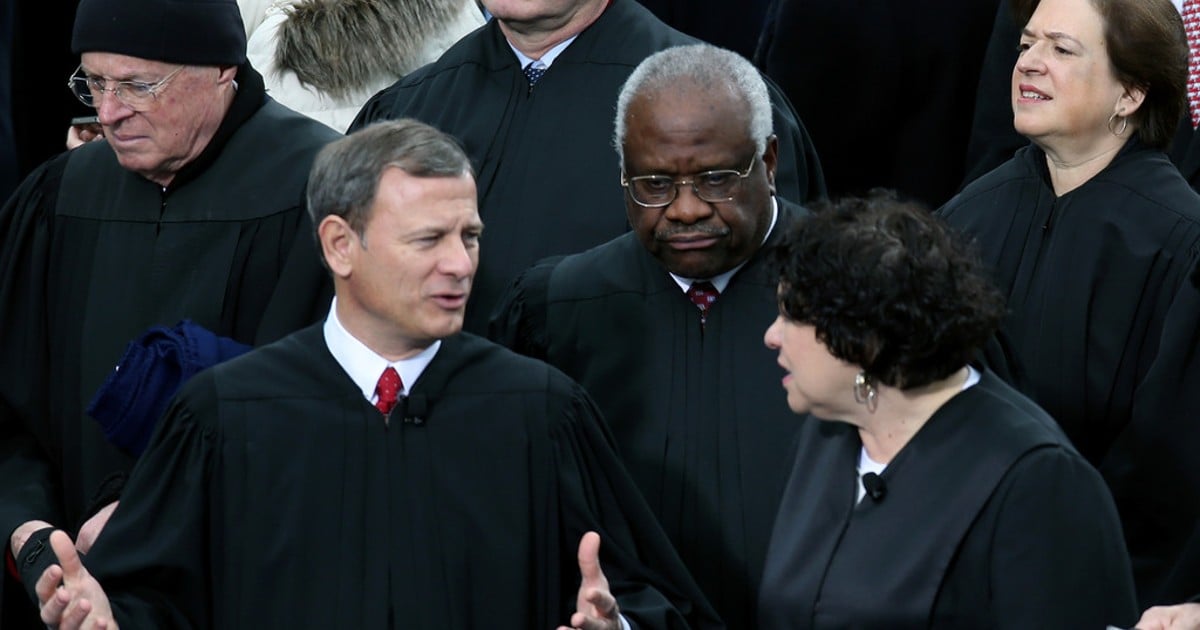OPINION: This article may contain commentary which reflects the author's opinion.
The U.S. Supreme Court has agreed to hear a case that could have major implications for veterans who may have been eligible for service-related benefits at one time but failed to obtain them in a timely manner.
According to SCOTUS Blog, the high court during its upcoming session will hear a case involving “equitable tolling” for a Navy veteran who did not file a claim within the allotted timeframe under existing law.
“If a veteran of the United States Armed Forces sustains an injury during military service, they may be entitled to disability benefits. If they apply for benefits within a year of separating from the military, benefits may begin retroactively to the day after service,” author Yelena Duterte, a member of the National Law School Veterans Clinic Consortium, which filed an amicus brief in support of the veteran, began.
“Yet, if a veteran fails to apply for those benefits within a year of discharge, they stand to lose thousands of dollars because the law currently does not permit equitable tolling – the doctrine that allows individuals, in some circumstances, to pursue a claim after a statutory deadline has expired. That may change after the Supreme Court hears Arellano v. McDonough, which will be argued on Tuesday. This case will determine if a veteran can file a claim many years after service and be paid disability benefits back to the day after their discharge from the military,” Duterte continued.
The case revolves around Adolfo Arellano, who served in the U.S. Navy from 1977 to 1981, during which time he served on the U.S.S. Midway. an aircraft carrier that was built during World War II and launched eight days after hostilities ended. During his stint aboard the carrier, Arellano said he witnessed fellow sailors being injured and killed, while he himself was nearly crushed and swept overboard, Duterte noted further.
In the aftermath, Arellano reportedly began to suffer severe mental health conditions and post-traumatic stress disorder (PTSD).
“The severity of his condition left him unable to understand that he was eligible to file a claim for disability benefits with the Department of Veteran Affairs. When he finally filed a claim for benefits 30 years later with the assistance of his brother, the VA agreed that his mental health condition was related to his military service and that it was totally disabling. As a result, the VA began paying him disability benefits — but only as of the date he filed his claim in June 2011,” the SCOTUS blog reported.
The former sailor appealed the decision and asked that the timetable regarding the statute, found in 38 United States Code, be “equitably tolled” so he could receive benefits.
“Equitable tolling allows courts, or in this case, an agency, to excuse missed deadlines in some circumstances. To obtain equitable tolling, a person must show that they were unable to pursue a claim due to extraordinary circumstances that prevented them from filing in time,” wrote Duterte.
If Arellano manages to win his case, he would receive retroactive VA benefits from his 1981 separation date from the Navy until the date he filed his initial claim. That would amount to roughly $600,000 in back pay, Duterte added.
In other high court news, former Associate Justice Stephen Breyer noted last week that the person or persons who leaked the Roe decision earlier this year still appear to be unknown.
In an interview with CNN anchor Chris Wallace, recently retired liberal justice said he has not been informed that the leaker has been identified.
“Within 24 hours the chief justice ordered an investigation of the leaker. Have they found him or her?” Wallace asked.
“Not to my knowledge, but … I’m not privy to it,” Breyer responded.
Wallace followed up by asking: “So in those months since, the chief justice never said, ‘Hey, we got our man or woman?’”
“To my knowledge, no,” Breyer repeated, who, despite being retired, maintains an office at the Supreme Court.
